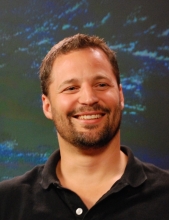CEE Seminar: Factors Influencing the Performance and Economics of MF/UF Membranes in Water and Wastewater Treatment

Founder and CEO, Water Planet
Professor (on leave), UCLA Engineering
Abstract: Over the past two decades, membrane filtration has proliferated globally to become the gold standard for removing pathogens, suspended solids, emulsified oils and colloids from virtually every type of water source – traditional and non-traditional, fresh and saline. Hence, everywhere nanofiltration (NF) and reverse osmosis (RO) membranes are used – and anywhere filtration or clarification is required -- microfiltration (MF) and ultrafiltration (UF) membranes are now frequently used as either treatment or NF/RO pre-treatment.
Globally, about 90 percent of membrane installations for municipal water and wastewater utilize polymeric hollow fiber membranes (with some exceptions) predominantly made from either poly(ethersulfone), PES, or poly(vinylidene fluoride), PVDF. Generally, ceramic modules cost 10-20 times more per unit area of membrane than polymeric modules, and because ceramic system wetted parts are constructed from stainless or higher grade steel (pumps, vessels, header/footer pipes, valves, etc.), system costs are about four to five times more than polymer membrane systems. However, ceramic membranes are more fouling tolerant, thermally and chemically stable, clean up easier and last longer than polymerics, so there are new scenarios emerging where overall life cycle costs may be comparable for polymerics and ceramics.
This talk will begin with a review of state-of-the-art and emerging MF/UF technologies followed by presentation of performance data from two MF/UF pilot studies on: (1) municipal wastewater and (2) industrial wastewater. The presentation will conclude by tying together the impacts of influent water quality and membrane properties on water recovery, energy demand, capital costs and operating costs.
Bio: For over two decades, Eric M.V. Hoek has dedicated his life’s work to research, education, innovation, engineering, entrepreneurial and philanthropic activities related to his passion – clean water.
He currently is the CEO of Water Planet (waterplanet.com), which exists to develop and commercialize next-generation water technologies to help meet global water sustainability imperatives. Since 2011, the company has incubated, developed and commercialized three water treatment companies: MembranePRO Services (membranepros.com), PolyCera Membranes (polyceramembranes.com) and IntelliFlux Controls (intellifluxcontrols.com). Hoek previously co-founded NanoH2O (acquired by LG Chem in 2014) and NanoMem Consulting.
Since the late 1990’s, Hoek has focused his teaching, research, consulting, philanthropic and entrepreneurial efforts on understanding and improving physical-chemical processes applied to drinking water treatment, wastewater treatment, desalination, oil and gas produced water, municipal and industrial water reuse and environmental remediation. From 2002 to 2014, he was a full-time engineering professor at UCLA and UC Riverside raising over $4.5M in external research funding as a principal investigator. He also helped create the Water Technology Research Center, the UC Center for Environmental Implications of Nanotechnology and the KAUST-Cornell Center for Energy & Sustainability with a combined $52M in external research funding.
Hoek has served as a technical adviser on numerous municipal and industrial water and wastewater treatment, recycling, reuse and desalination projects as well as a consultant to water technology startups, hedge funds, venture capital funds, law firms, private research foundations, non-profit foundations, US federal, state and local agencies and foreign national research agencies. In the summer of 2010, he served as the chief technical advisor to Ocean Therapy Solutions during the cleanup of the BP Deepwater Horizon oil spill. In 2012, he embarked on a five-year collaboration with Global Classrooms for Peace to improve sanitation and drinking water for villages and settlements on remote islands of Fiji.
Share
Upcoming Events
-
MSE Special Seminar: Architecting 3D Complex Materials for Sustainability
-
MSE Special Seminar: Decarbonizing Industries for a Climate-resilient Future - From Renewable Energy to Sustainable Material Recovery
-
CEE Seminar: BIM and the Digital Twin
-
MSE Special Seminar: Revolutionizing Battery Technology - Engineering Quantum Materials for Enhanced Safety and Performance in Solid Electrolytes
-
MSE Special Seminar: Designing Sustainable Soft Matter from the Molecule Up
